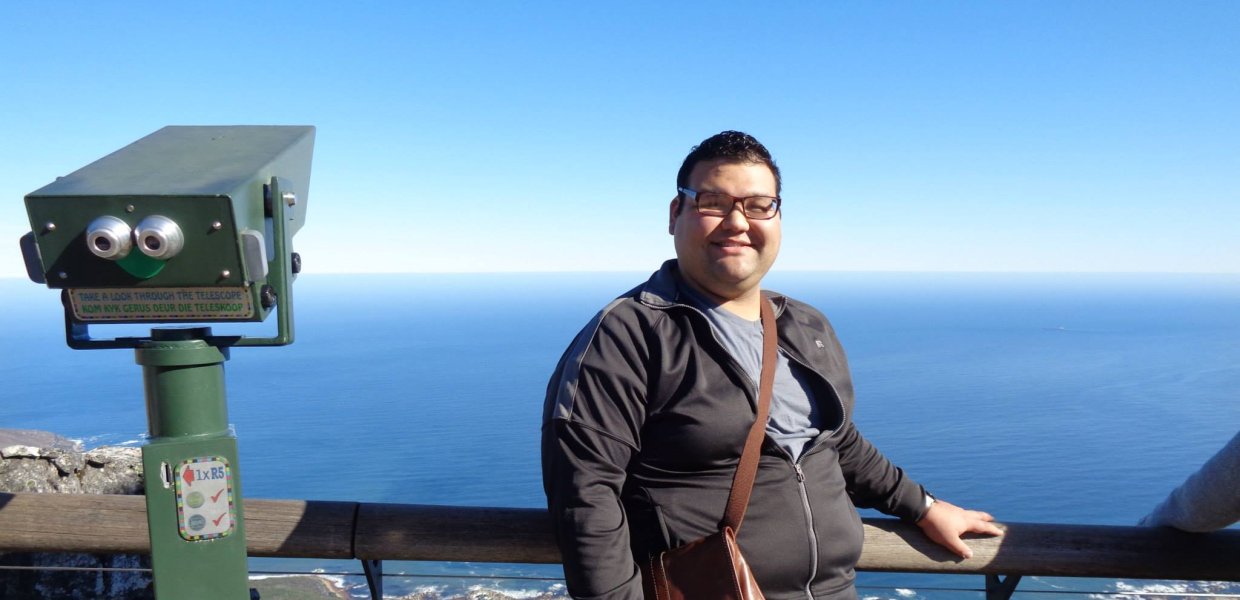Every year, the National Science Foundation (NSF) supports graduate students engaged in research in the areas of science, technology, engineering, and mathematics with the NSF Graduate Research Fellowship. This year, USC Annenberg doctoral student Ignacio Cruz is one of those students. With the fellowship, he'll continue to pursue his work on emerging communication technology.
Cruz is the first USC Annenberg student to receive an NSF Graduate Research Fellowship and here, he shares his tips for applying to fellowships, how USC Graduate School resources helped him prepare his application, and what the funding from the NSF will mean for his academic career and his research.
What are your research areas?
The big question that my work revolves around is exploring how emerging communication technologies intersect with workplace dynamics including multidimensional networks, information cascades, and social capital development. It’s interesting to understand the interdependent relationship between the sociality and materiality of technologies within organizations.
What was the application process like for the NSF Fellowship?
It was quite an extensive application—but one that is totally manageable! The key to completing the application is preparing for it in advance. The NSF wants you to create a package that details who you are as a scholar, and the broader impacts of the research you have done and aim to complete in the future. As an applicant, you’re speaking to researchers in your field of study, so it’s imperative that you lay out your plan as detailed, thought-out, and convincing as possible.
You attended the USC Graduate School Bootcamp in summer 2015. How did that help you with the application process for NSF?
It helped tremendously! It was a two-week, writing intensive bootcamp that helped me brainstorm ideas for writing my personal statement and research plan. Being able to brainstorm ideas with other doctoral students across many disciplines was super helpful in making my writing clear and accessible to others not familiar with my research topics. Whenever you have an extra pair of eyes looking at your writing, it helps!
What will receiving the NSF Fellowship allow you to do academically and with your research?
I am so grateful and excited to have received the NSF GRFP. Starting this fall, I’ll be fleshing out my plan of research to complete the project I proposed for the fellowship. The fellowship will give me an opportunity to focus on preparing myself to gain a deeper understanding of my topic, collaborate with other scholars on related projects, and begin forging partnerships with organizations and research sites to complete my projects.
You’re the first USC Annenberg student to receive an NSF Graduate Research Fellowship! Looking at the NSF’s website, many of the fellows seem to focus on “hard science,” even though social scientists are encouraged to apply. How do you see social science and your work as fitting within the context of how we generally think of STEM?
A big point I’ve learned to stress is how important it is to bring a communication angle to the table. Although the NSF funds a large majority of hard science projects, I think the key for communication scholars is to innovate in our work across disciplines to provide interesting avenues to further theory and provide effective, applied tools for the industries we study. My work is grounded in organizational communication and helps to engage in conversation with other disciplines that may not be aware of the endless collaborations we can create. I know my work will be able to bridge and span academic boundaries across the sciences.
What advice would you give other Communication students who are interested in applying for the NSF Fellowship?
The hardest thing I struggled with during the application process was being able to clearly articulate my ‘big question’ and think about a plan of study and research that I could undertake to answer it. The biggest help I received was bouncing ideas off with my mentor and other faculty in the department. In your application, you’re speaking to a panel of interdisciplinary scholars that may not be too familiar with your topic. You have to be able to lay out the significance of your work, demonstrate the resources you have or will get access to, and speak to the intellectual merits of your research and the bigger impact it will have on society. It’s daunting task, but it definitely helps give you direction for your future work in the field. You can do it!
